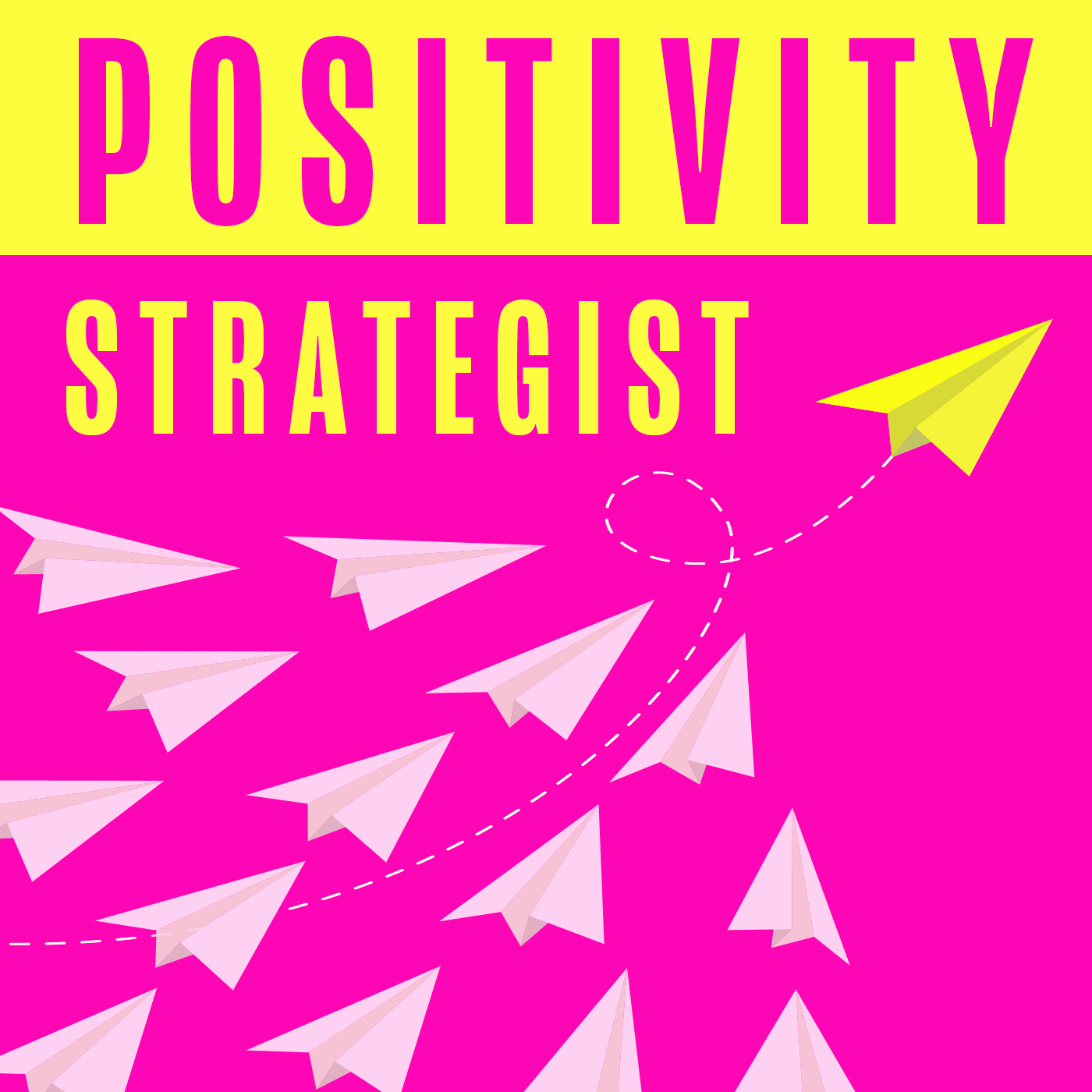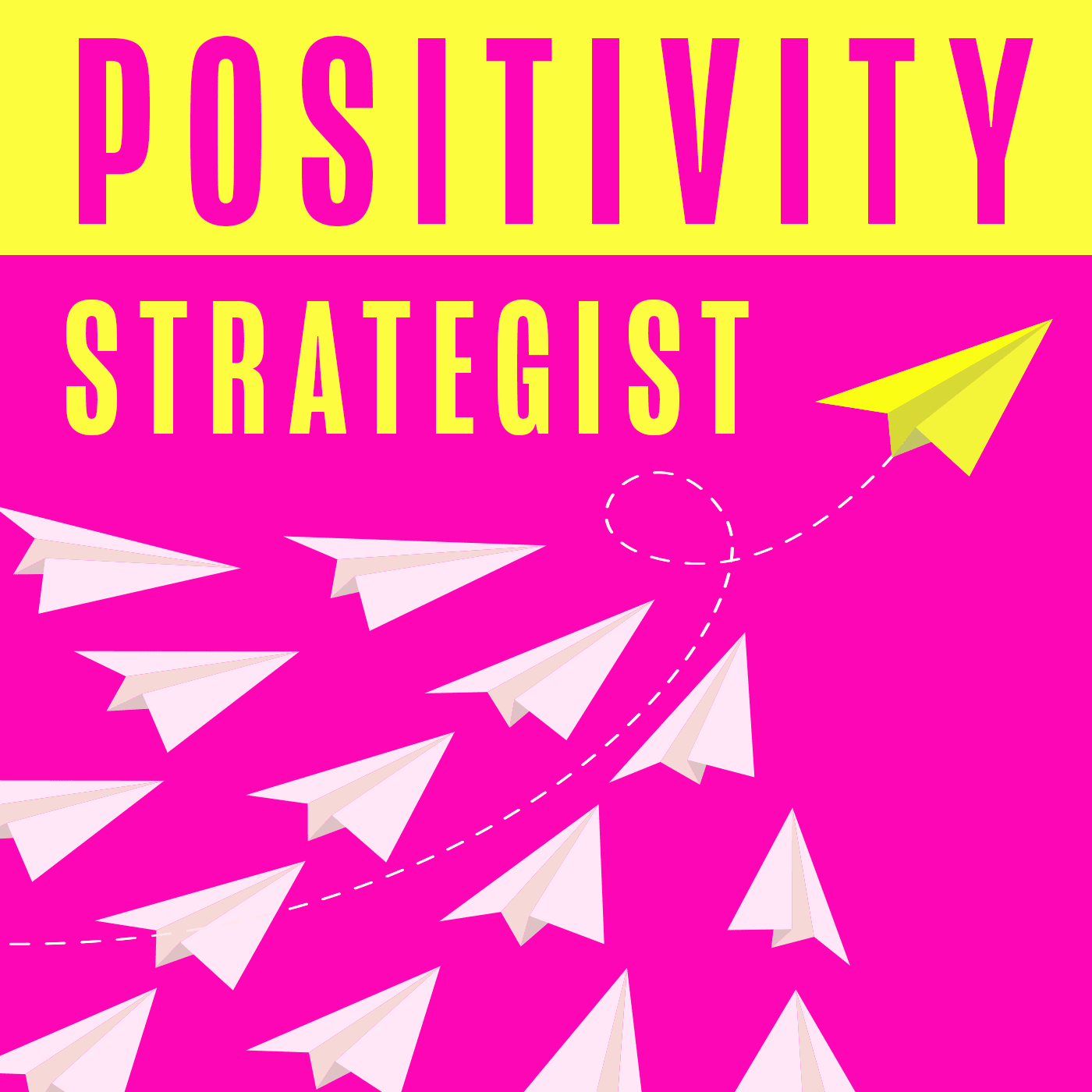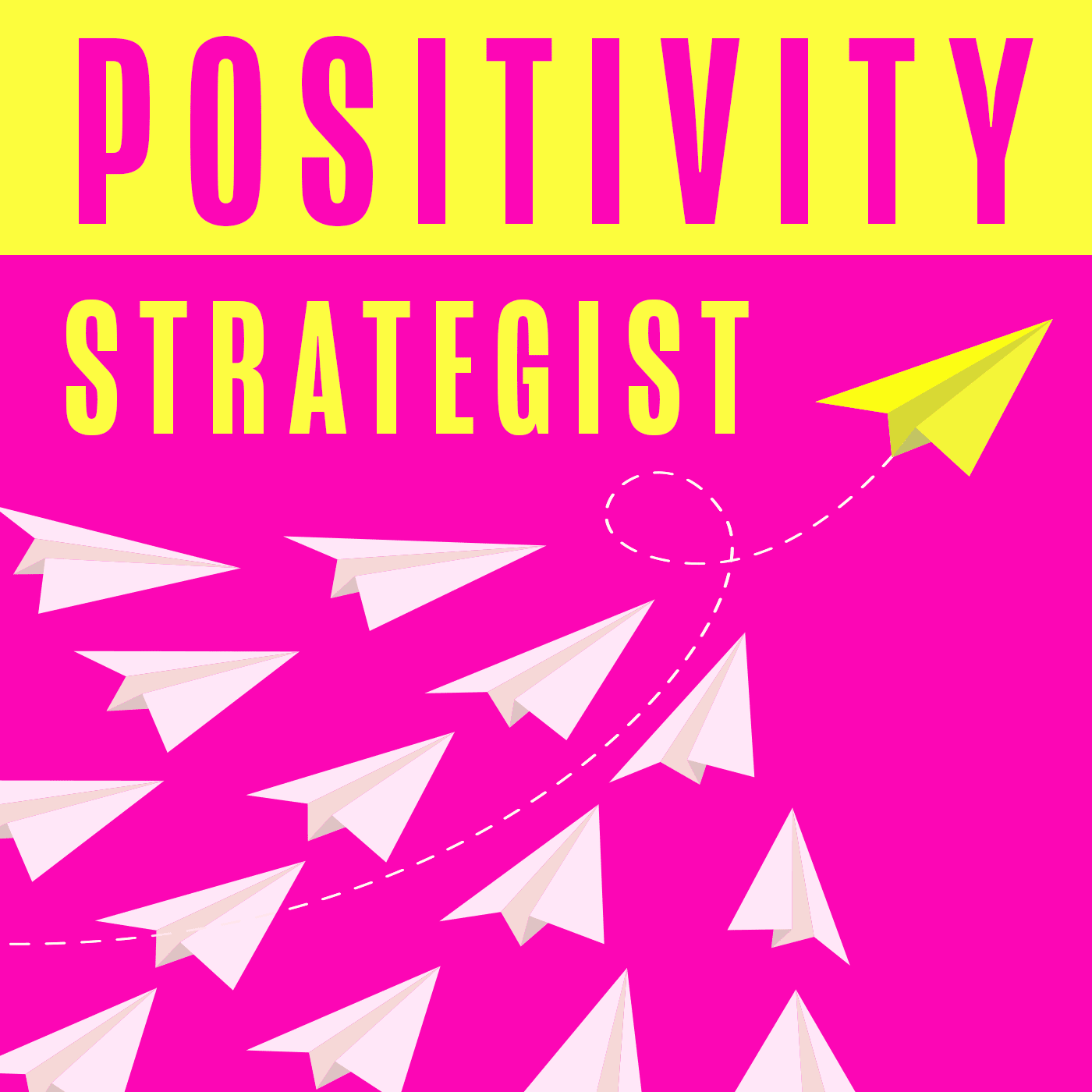Discover Positivity Strategist
Positivity Strategist

Positivity Strategist
Author: Robyn Stratton-Berkessel
Subscribed: 227Played: 2,793Subscribe
Share
© 2022 Robyn Stratton-Berkessel
Description
Positivity Strategist injects a good dose of optimism and possibility into your life. It seeks to marry the ideal with the practical. Conversations with thought leaders and everyday people shine the light on what works and amplifies those every day, micro-moments of positivity, irrespective of what else is going on. You'll be energized by lots of practical tips, inspiring you to live a truly satisfying and meaningful life.
Podcast host is Robyn Stratton-Berkessel, TEDx speaker, author, workshop designer and facilitator. Her specialty is Appreciative Inquiry and other strength-based, positive methodologies that ignite transformational experiences.
The foundational practice is to uncover the stories of success (or failure) that lead to personal empowerment which then sets us free to be at our best. When we can do this, we boost our general health and well-being. We strengthen our resiliency, creativity, decision-making, productivity and more. We develop a deeper understanding and appreciation for ourselves, others and the world around us, thereby growing professionally and personally.
Podcast host is Robyn Stratton-Berkessel, TEDx speaker, author, workshop designer and facilitator. Her specialty is Appreciative Inquiry and other strength-based, positive methodologies that ignite transformational experiences.
The foundational practice is to uncover the stories of success (or failure) that lead to personal empowerment which then sets us free to be at our best. When we can do this, we boost our general health and well-being. We strengthen our resiliency, creativity, decision-making, productivity and more. We develop a deeper understanding and appreciation for ourselves, others and the world around us, thereby growing professionally and personally.
139 Episodes
Reverse
The professionals, researchers and authors in this podcast season have shared their specific social constructionist practice in a pre COVID world. In this episode, five of us reflect how social constructionism as an orientation is relevant and meaningful at all times, in all places and communities. More than ever, constructionist approaches that are available to us can help us heal the past and respond to current challenges and societal unrest in relational and collaborative ways. To learn more and find links, please visit https://positivitystrategist.org/social-constructionist-practice
Helping people move further away from what produces conflict and closer to the relationships they prefer is what narrative mediation seeks to produce. Conflict resolution through the lens of social construction, and framed as narrative mediation, offers that conflict between individuals is usually constructed within a larger community context. To learn more and find links about this show, please visit https://positivitystrategist.org/narrative-mediation
How do we participate in community building practices in ways that attend to difference? Ways that are genuinely committed to consider power relations and how they play out when working amidst differences? What we encounter in community can shift our perspectives and impact the relationships with ourselves and others. To find out more and access links, please visit https://positivitystrategist.org/community-building-practices/
Transmaterial worlding provokes us to pay attention. Once we start to realize that we are merely co-inhabitors of this world, we awaken to the notion we are making it, or breaking it, with each breath we take, each word we utter, and each action we take. The human species as all powerful and in control is a social-cultural construct. Globally right now, we need to listen differently to the distinct parts of the world and understand that other matter is also communicating. Humans need de-centering and de-throning from the illusion of being in control of the world. For more information and links, please visit https://positivitystrategist.org/transmaterial-worlding
Educational evaluation of the entire ecosystem in education can enhance learning processes, students’ engagement and vitality of relationships in classrooms, and in the evaluation of teaching and the school as a whole. Embracing collaborative learning, dialogic pedagogy, and flexible curricula, educational evaluation that comes from a relational perspective truly speaks to the demands of a rapidly changing world. To learn more, please visit https://positivitystrategist.org/educational-evaluation
Relational processes are key to recovering from addiction. Addiction's development, sustainability and finally its ending are embedded in family, community and broader societal contexts. In order to recover an addict needs to establish new bonds based on trust respect and love; and, together with others build unique pathways to a sense of belonging. Interview with Pavel Nepustil, PdD. To find out more and gain access to links, please visit https://positivitystrategist.org/relational-processes
Dr. Lois Holzman explores the topic of social therapeutics as a playful, performatory, philosophical methodology for person and community development. Influenced by three intellectual traditions, social therapeutics seeks to bring meaning to our relational processes in collaborative and appreciative ways to elevate human connection and bridge cultural divides. To access resources and links, please visit https://positivitystrategist.org/social-therapeutics
Transformative community conferencing is an approach to community building or reconciliation. As a narrative practice, it embodies a more reflective orientation to relationships and to systems change. How and when we ask questions helps us think differently. It helps to begin to ask questions such as: “What is the narrative here? What is the story you are telling in relation to that narrative?” It enables people to engage and to flourish. When you look at events as stories you can always unpack them to make the narrative more visible to support flourishing for all. To access resources, please visit, https://positivitystrategist.org/community-conferencing
How we deal with conflict, bullying, rule violation, etc. has crucial implications on how we live together in schools but also in society. Unfortunately, punitive and authoritative approaches are still predominant, despite their negative consequences. It is clear that traditional structures in education clash with young people’s new ways of living in a global and digital world. Any resulting misbehaviors are addressed from the adults’ perspective, leaving out what is important to the children. To find out more, please visit https://positivitystrategist.org/school-harmony
Research into positive aging delivers findings that run counter to the traditional understanding of aging. The traditional view develops negative expectations. To the contrary, positive aging research and practice puts attention on the value of being optimistic, enjoying the potentials of older age and growing capacities over time. To read a summary and access resources, please visit, https://positivitystrategist.org/positive-aging
This is the introductory episode of season 5 which focuses on social innovations across many domains. We are collaborating with the Taos Institute and supporting a significant publication, The Sage Handbook of Social Constructionist Practice. My guests in this introductory episode are two of the four editors. Our conversation addresses three points: the work of Taos Institute, what social construction is, and the intention of the book. To read more and access links, please visit https://positivitystrategist.org/social-innovation-practices
Save the Date for Season 5. It’s a collaboration with the Taos Institute. Our inquiry: What are the innovations that Social Construction is bringing to our world? If you are new to social constructionist ideas and curious, this season will give you a lovely introduction. You will be exploding with possibilities and ah ah moments, as our guests share over and over, having social construction as a thought partner and guide is liberating. For more information and access resources, please visit https://positivitystrategist.org/podcast
The forests and trees, and rivers and oceans, and deserts, and all creatures have much to teach us about mutuality of purpose, and collaboration, and respect and values. Paying attention to natural phenomena - the ecology of our planet reshapes what being in community and cooperation means. It’s more than connection and belonging that holds us together, it’s entanglement. We are entangled. Please join me in celebrating our entangled relationships. For links and resources discussed in this episode, please visit our show notes at https://positivitystrategist.org/ps125
Mindfulness for chocolate lovers introduces a lighthearted way to stress less and savor more each day, offering a more playful and sweeter life. This is appreciative embodying in a tasteful, olfactory way! And you don't even have to eat the chocolate. For links and resources discussed in this episode, please visit our show notes at https://positivitystrategist.org/ps124
Being still is a precursor to truly listening, paying attention and opening up to possibilities, novelty, creativity and aliveness. What is beckoning you? Racing around may be helpful to get things done. Being still allows things to come. Embodying stillness is a source of creativity. For links and resources discussed in this episode, please visit our show notes at https://positivitystrategist.org/ps123
A most practical conversation on meaningful alignment where we talk about concepts such as the inner game and self regulation. We focus on interpersonal dialogue preferences and the promising outcomes we can aspire to if we learn how to embody meaningful alignment. We reflect on how to invite people to listen to what their bodies and emotions are telling them so they can cultivate caring relationships with themselves and others. For links and resources discussed in this episode, please visit our show notes at http://positivitystrategist.org/ps122
If you’re interested in human development at the intersection of community, business, education, leadership, life, and learning stay with us. And, if you have a curiosity about exploring the principle of wholeness and embodied practices that invite one another to show up fully, you’re in the right place. For links and resources discussed in this episode, please visit our show notes at https://positivitystrategist.org/ps121
Neuroscience and Design Thinking offer keys to a mindful, healthy and purposeful life. Dr. Kyra Bobinet author of Well Designed Life offers the science behind why we don’t do what we know we should. We talk about the difference between behaviors and habits and offer practices we can adopt to form new habits. Developing an iterative mindset helps us succeed. The practice of embodying self-compassion is extraordinarily easy; we do it all the time without knowing. For links and resources discussed in this episode, please visit our show notes at https://positivitystrategist.org/ps120
Insights about the embodied brain and why cultivating a conscious relationship with the body matters at all times, and, especially when experiencing times of uncertainty. We touch on these topics and the integration of neuroscience and spirit. We offer three practical activities to develop an embodied consciousness. For links and resources discussed in this episode, please visit our show notes at http://positivitystrategist.org/ps119
"To embody" means what? This is a naive exploration. Topics include designing experiences that use the whole body and ways that integrate head, heart and body. We vote with our feet, we make choices through conversations that come from where we are literally standing. For links and resources discussed in this episode, please visit our show notes at http://positivitystrategist.org/ps118
























